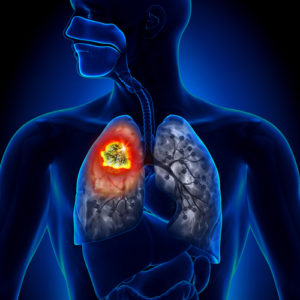
Despite the drop in smoking rates, lung cancer remains the second most common form of the disease in the United States. Scientists are hopeful that a recent discovery will aid the development of more effective immunotherapy for lung cancer.
A Roadblock in Lung Cancer Treatment
The immune system is the body’s first line of defense against foreign invaders. Immunotherapy is a form of cancer treatment that boosts the ability of the immune system to seek out and destroy cancer cells.
Current immunotherapy for lung cancer includes a drug that shuts down a protein on the surface of tumor cells. The protein, called PD-L1, latches on to T cells and prevents them from attacking.
Unfortunately, many lung cancer patients didn’t respond positively to this treatment. Scientists realized they needed to learn more about the “immune compartment of lung tumors,” which involves the relationship between the cancer cells and the tumor microenvironment.
Scientists Make a Breakthrough
A research team in Switzerland studied mice with a form of lung cancer similar to that in humans. They found that a type of immune cell known as Gr1+ neutrophils actually triggers a cycle in the microenvironment that promotes the growth of tumor cells.
Team leader Prof. Etienne Meylan explained that neutrophils are an essential part of the immune response, so removing them is not the answer. Future research will focus on how the neutrophils operate and how immunotherapy for lung cancer can work around them.
Issels®: The Leader in Effective Immunotherapy
For decades, we have been successful treating patients with immunotherapy for lung cancer and other forms of the disease. Contact us for more information.



